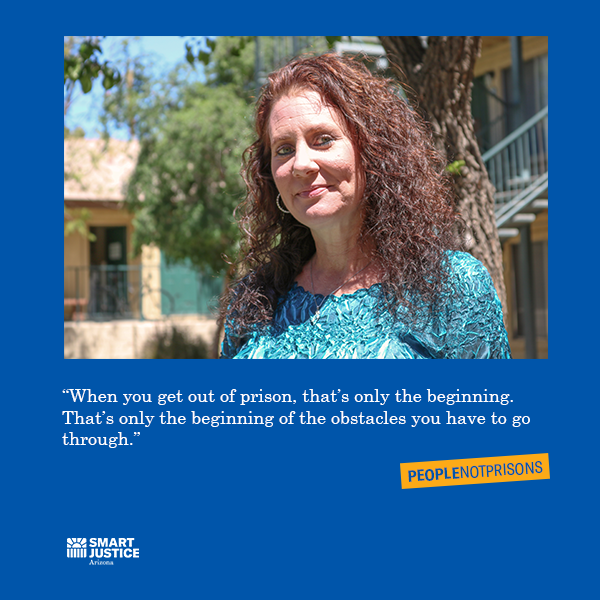Stories on Incarceration

Arizona's mass incarceration crisis has devastating effects on individuals and their families. Many formerly incarcerated people continue to be punished for their crimes long after they have left prison, as they struggle to integrate back into society. These are a few of their stories. We want to hear yours.
Shawna Roman
"[My son] plans on looking for me when he's old enough to do so." -Shawna Roman
Shawna Roman was a mother of two when she entered the criminal justice system for the first time. Shawna said she hit a roadblock in her life after her husband abandoned her. "I became a very broken person," Shawna said. While in prison, Shawna was denied transport to attend a custody hearing. Because she did not show up to the hearing, she lost her rights to contact her children by default. "He doesn't even remember me," Shawna said of her youngest son. The first time Shawna was released from jail, she became homeless. A lack of adequate services to help get her back on her feet led to two more arrests. Shawna is now focused on improving her life in hope of one day seeing her children again. She wants to reform Arizona's criminal justice system so more rehabilitative services are available for people who need help during difficult times in their lives.
Eugene Glover
"Not being locked up and having my family back in my life, that's the most wonderful gift I could ever ask for." -Eugene Glover
Eugene Glover spent 14 years in an Arizona prison where he believes he did not receive proper medical care. As a diabetic, Eugene felt as though the Arizona Department of Corrections did not take his medical needs seriously. Eugene believes the lack of effective reentry programs in Arizona prisons leads to a high rate of people being sent back to prison. Upon release, his lack of knowledge of basic technology put him at a disadvantage as he searched for work. "I go to apply for a job, the job tells me I have to go online. Online? What are you talking about online? I have no idea of this new technology," Eugene said. Eugene is now employed and is learning how to use a smartphone. He is also back in touch with his family after losing contact with them for years. "As far as my freedom goes, not being locked up, and having my family back in my life, that's the most wonderful gift I could ever ask for," he said.
Khalil Rushdan
"Upon my release and me being grateful to have another opportunity, I was like, 'I have to give back,'" -Khalil Rushdan
